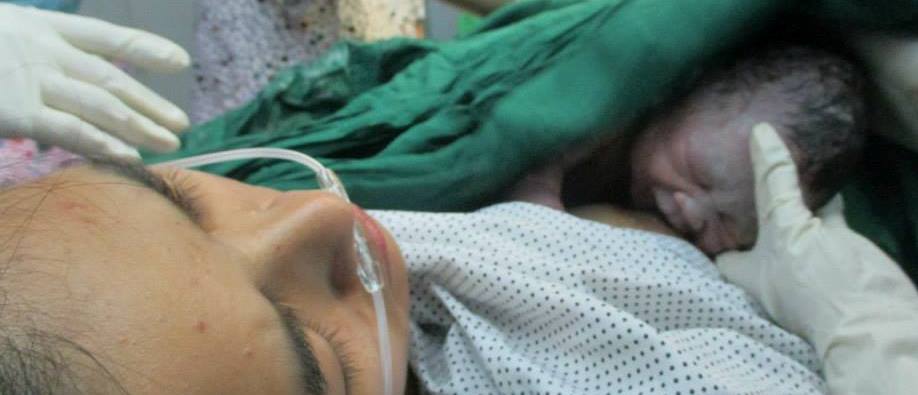Are you getting impatient and too excited to meet your little one? Have you already packed your hospital bag containing essentials for your baby? I am assuming you are on your third trimester and preparing for your delivery and postpartum. Please remember that planning and preparation is always the key for better recovery. And the best way to prepare you is to inform you of what to expect in your postpartum care.

What To Expect On Your Postpartum Care
Taking In Phase: The first twenty-four hours up to your third day after delivery will be a passive moment for you. Your health care team will expect that you will be more dependent on them and your support person. They will help you mostly in everything specifically on establishing your breastfeeding pattern with your newborn and preventing postpartum complications such as bleeding and infection.
You must have a support person during this period primarily because of physical discomforts, pain, and fatigue. You may experience uncertainty on how to care for your child at this point, and you and your support person must listen very well to your doctor’s instructions and your nurses’ teachings. As the reality of your new role sets-in, verbalizing your experience from pregnancy, labor, and delivery will help with your processing and adjustment to your new life. The taking-in phase is a chance for you to regain your physical strength and to organize your thoughts.
Taking Hold Phase: This phase starts as you try to be less dependent on your support person, anytime from your second day to your fourth day after delivery. You will notice that you start initiating actions on your own and making decisions without asking others. Your focus from your discomforts will shift to taking care of your newborn. Your support person should continue to provide positive reinforcement as you gradually settle in your new role as a mother. A doctor’s appointment will also be scheduled during this period to check on your progress.
Letting Go Phase: The letting go phase sets in when you finally accept your role as a mother, or probably to another one. Your support person needs to help you with readjustment especially with your relationship. The inability to readjust to new roles and relationships causes postpartum depression.
Your Postpartum Body
You might not be able to notice some changes in your body as you focus on the care for your newborn. But your body’s system will be affected after the birth of your newborn. Learning about it while pregnant will help you deal with the discomforts and understand your body after you have settled in your new role.
Returning to pre-pregnancy state:
- Your uterus will continue to contract after childbirth to return to its pre-pregnant state and to prevent bleeding.
- The vagina will also return to its pre-pregnant state through contraction but will be slightly stretched.
- Pre-pregnant hormones start to increase after twelve days to signal a new menstrual cycle for nonexclusive breastfeeding mothers.
- Your digestion will be active again except if you had a cesarean section as it will take a bit longer.
Common discomfort after childbirth:
- Discharges from your vagina will continue after childbirth. It will start as a bloody secretion for the first three days and will gradually decrease. It will then turn brownish or pinkish on your fourth day. A whitish or colorless discharge appears on your tenth day and may last until three weeks after childbirth.
- The labia majora and labia minora or the vaginal lip-like folds will be soft and loose after childbirth. It will not return to its pre-pregnancy state.
- The perineum, the space between your vagina and your rectum, will be sore shortly after childbirth.
- Your urine output will also increase to get rid of excess fluid that accumulated during pregnancy.
- Defecation will be slow and painful because of relaxin and episiotomy. Your doctor or nurses will assess your abdomen frequently to ensure that your bladder was not overdistended.
Home Care Tips

Adjusting to a new role can be tiresome and frustrating. There will be sleepless nights, physical discomforts, and uncertainties. Know what to expect during your postpartum and how to care for your body. Remember you are important as well.
- Focus on recovery: What best way to recover than resting? Get plenty of rest by limiting visitors, sleep when your baby sleeps, and ask for help. Follow your discharge instructions and show-up on your doctor’s appointment.
- Keep moving: Going back to the pre-pregnancy state happens faster when you ambulate early after childbirth, breastfed your newborn, and stay well-nourished. Do your Kegel’s exercise to help restore the strength and muscle tone of your vagina.
- Be patient: Your adjustment period can cause some strain in your relationships, but remember to be patient to your self and your support person. Slow down and don’t try to lose your baby weight too soon.
- Speak up: You’ve gone from nine months of being pregnant, hours of labor and childbirth, and now sore and sleepless. You will need emotional support as much as you need help with your chores. Don’t hesitate to speak up to your support person, family, friends, and to your doctor.
All the changes that you will go through, albeit gradual, is a beautiful transition into motherhood. It will be less difficult now that you are armed with information and recognizes the significance of having a strong support system. Start creating your lovely memories.
….


I hope I read this at least 6 months ago. Great post. Helpful content. GOD bless.
Thank you for your wonderful comment. I hope I can write more useful content for you.